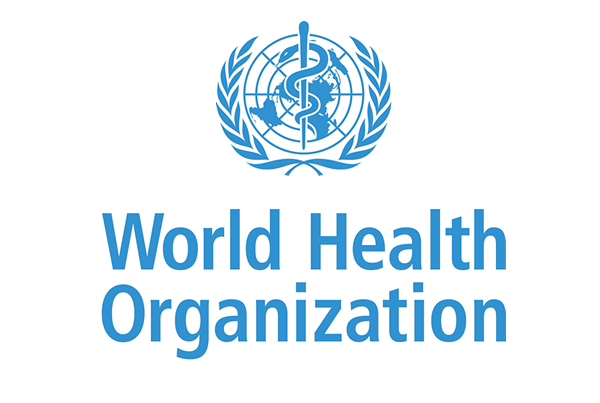Alternative System of Medicine
Literally alternative medicine means Alternative to “something else” this “something else” is western medicine or Allopathy or orthodox medicine.
This term is used to cover all forms of medicine except allopathy. In 1973, the Medical Faculty of the University of Rome convened the first World Congress of Alternative Medicine, and the provisional program contained no less than 135 different therapies. The experts of W.H.O. have also identified and enlisted more than 100 types of practices and they have termed these as traditional medicine.
These forms of medicine ate known as traditional medicine (as most of these are practiced from time immemorial), complementary medicine (as these medicines supplement allopathic medicines in many-a-cases) (as it differs from the orthodox medicine), holistic medicine (most of the alternative medical systems consider the human body as a complete being comprising of physical, mental, social and spiritual dimensions), ethno medicine (as these traditional health care systems are closely associated with the life and culture of the masses), natural medicine (as these methods of treatments are based on the laws of nature and natural substances are used to treat the patients).
There are more than 100 systems of alternatives medicines still in practice all over the world. Every country, region or area has its own traditional system of health and medical care such as for the Chinese it is acupuncture, for the French, Magnetic healing, for the German, Heailpraxis , for the English-Herbalism , for India-Ayurveda, for the Muslim countries-Unani, For the southern part of the country-Siddha, for Japan- Shiatsu etc.
The most popular forms of Alternative medicine are Ayuveda, Unani, Homoepathy, Naturopathy, Yoga Therapy, Acupuncture, Acupressure, Magnetotherapy, Herbalism, Meditation, Aroma Therapy, Bach Flower Remedies, Gem therapy, Chromotherapy, Hydropathy, Diet Therapy and Reiki.
Alternative Medicines & W.H.O.
The term Alternative Medicine means any form of medicine that is outside the main stream of western medicine as practiced by the majority of doctors today. Alternative medicine exists in all cultures to some degree and terms such as traditional medicine, indigenous medicines or folk medicine etc. are used to describe such practices. These medicines are practices from hundred or even thousands of years depending on the country and culture concerned. Because two thirds of the world’s population (mainly in the developing countries) relies entirely on such traditional medical therapies, the World Health Organisation has declared its intention actively to encourage traditional medicine worldwide to fulfill their various goals. It is interesting that even where western medical care is available the majority of people in the world choose to remain loyal to its indigenous useful medical systems. The W.H.O. has pledged itself to foster a realistic approach to traditional medicine, to explore the merits of traditional medicines in the light of modern science in order to discourage harmful practices and encourage and skills in traditional and western medicine and claims one W.H.O. report, “For far too long traditional system of medicine and modern medicine have gone their separate ways of mutual antipathy. Yet are not their goals identical – to improve the health of mankind and therapy the quality of life? Only the blinkered mind would assure that the each has nothing to learn from the other.”

Importance of Alternative Systems of Medicines.
Recently we see there is a boom in various systems of alternative medicine. More and more patients are opting for alternative systems of medicine. We find a number of articles and stories in the leading-news-papers and magazines which is evident of its popularity.
There is a renewal interest in these systems of medicine that were long ago. Discarded in pursuance of the dynamic science of Allopathy. But after decades of serious obsession with the modern medicine systems that came from the west, in India as elsewhere on the globe, people have started looking at their ancient systems again.
The most important reason which disturb and agitate the mind of the people at large and patients in particular, causing interest in alternative medicine has been the increasing side effects of allopathic medicine and people are getting afraid of such effects.
The second most important consideration especially in context to the third world or developing countries is the spiraling cost of the allopathic medicine.
The third reason is that when people are frustrated and not getting the desired cures of their ailments from the orthodox medicine they look for some alternative forms of healing that will bring solace and relief. Hence an interest is seen in the field of Alternative medicine.
Besides the above primary reason there are some subsidiary or secondary reasons of the growing popularity of the alternative medicine such as:
The main object of the Council of Alternative System of Medicine
- Provide teaching and practical training in alternative medical education and to make provision for promotion, development and dissemination of knowledge in the field of such system of medicine.
- To create high level intellectual ability in the field of alternative system of medicine.
- To establish state of the art facility for alternative medical education and practicing in the field of such system.
- To carry out development in alternative system of medicine and to offer continuing education programme to establish campus and its institutes for the purpose of studies in the alternative medical sciences at different places in India and other countries, award certificates and diploma or other methods of evaluation.
- To enlist the registered alternative medical practitioners in all over India. To arrange, establish and manage the medical labs, library, reading room, charitable dispensaries, Clinics & hospitals etc.
- To co-operate with the government in all social welfare activities such as Family planning , polio immunization and all the hygienic programme in the field of environmental protection as plantation, water pollution etc which are conducted by the NGO’s, Centre or state Government.

